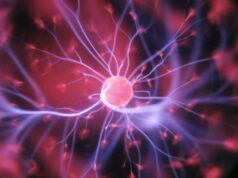 NeuroPace has announced that new data from a multicentre, real-world clinical study of the RNS system has demonstrated outcomes never before seen with other neuromodulation therapies for focal epilepsy. Data from this study and more than 30 abstracts related to the RNS System were presented at the American Epilepsy Society (AES) 2019 Annual Meeting in Baltimore, USA, this week.
NeuroPace has announced that new data from a multicentre, real-world clinical study of the RNS system has demonstrated outcomes never before seen with other neuromodulation therapies for focal epilepsy. Data from this study and more than 30 abstracts related to the RNS System were presented at the American Epilepsy Society (AES) 2019 Annual Meeting in Baltimore, USA, this week.
Results from the multicentre, retrospective study of 150 patients showed that patients receiving the RNS System experienced 67% median seizure reduction at one year and 75% median seizure reduction at two years. A subset of patients showed an especially impressive response: more than one in three patients achieved >90% seizure reduction and nearly one in five reported no seizures in the preceding three months. Overall, physicians assessed 75% of the study patients to be “much improved” or “very much improved” in their functioning.
“We are encouraged to see that therapeutic outcomes of the RNS system in the real world are even better than those reported in the original US Food and Drug Administration (FDA) trials. Seizure reductions of 67% and 75% within one and two years of treatment in the real world are equivalent to outcomes achieved at six and nine years in the early clinical trials,” said Martha Morrell, chief medical officer of NeuroPace. “These results suggest that overall efficacy of the RNS System is accelerating, as our extensive clinical experience has been used to inform and optimise programming strategies. However, more opportunity exists. By combining the RNS system’s unique ability to capture and respond to continuous intracranial EEG data with artificial intelligence, we will potentially be able to rapidly titrate therapy for each individual patient based on their unique neural biomarkers in the future.”
In addition to therapeutic benefits, the RNS System is the only epilepsy therapy that empowers clinicians with long-term intracranial EEG data. Other scientific posters at AES revealed how researchers are using this ground-breaking, objective neural data to better treat and manage refractory epilepsy.
Highlighted presentations included:
- Results from Multidien Chronotypes in Human Focal Epilepsy, presented by Marc Grau Leguia, University of Bern, Switzerland, showed that multi-day rhythms captured by the RNS system may provide biomarkers in the brain that could help determine the timing of seizures and estimation of seizure risk.
- Changes in Detections Captured by RNS System during Initiation of Cannabidiol was presented by Janet Greenwood, PA-C, Keck USC School of Medicine, Los Angeles, USA. Data from the case series highlighted the utility of long-term iEEG data from the RNS System as an objective measure for clinicians to assess neural response to cannabidiol (CBD) during titration to clinical therapeutic dose.
- Another case series, Awareness of Seizures: Patient Report and RNS Record, by Asfi Rafiuddin of George Washington University Hospital, Washington DC, USA, compared objective electrophysiological recordings from the RNS System to patient-reported seizures. The objective data was found to be helpful in the diagnosis and treatment of seizures because self-reported seizures may be inaccurate for various reasons.












